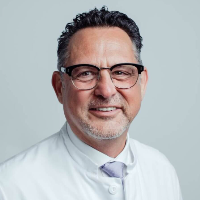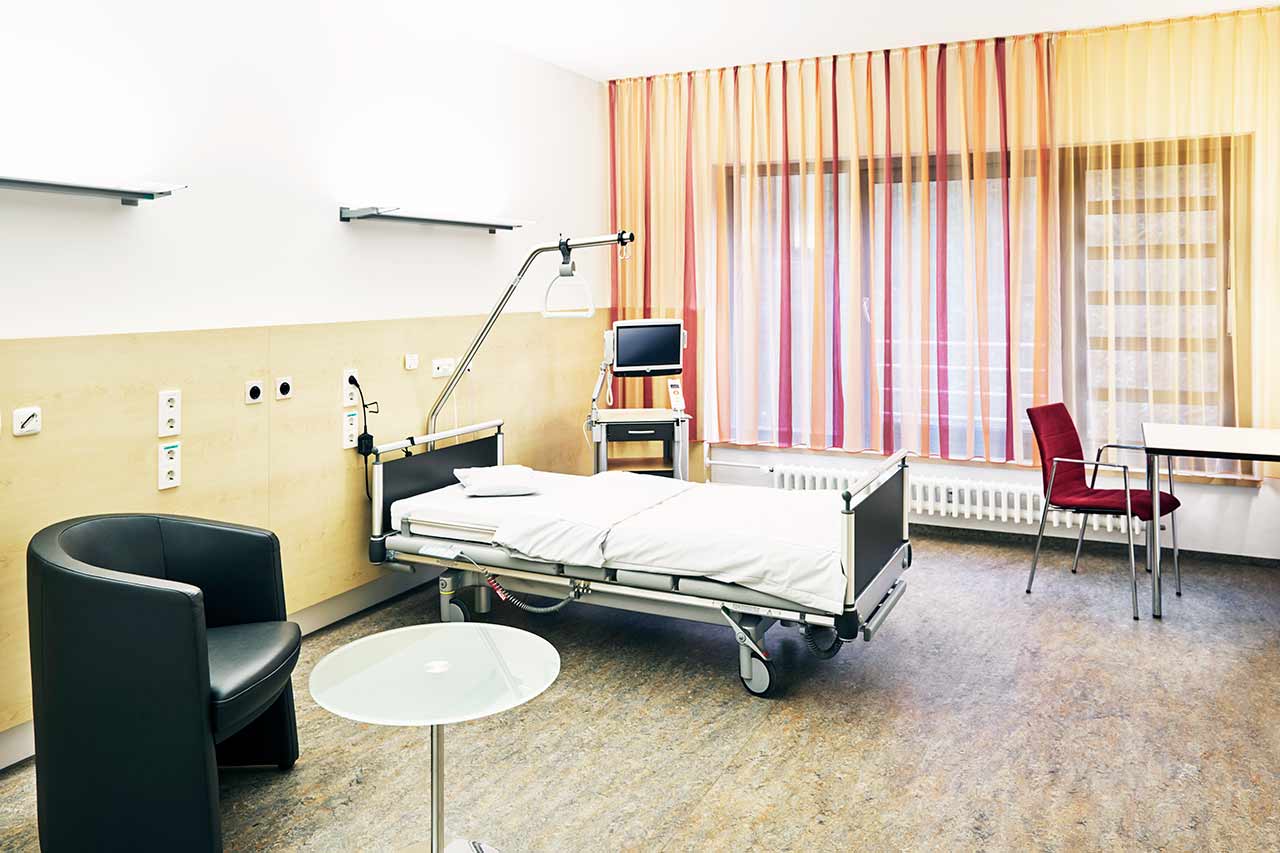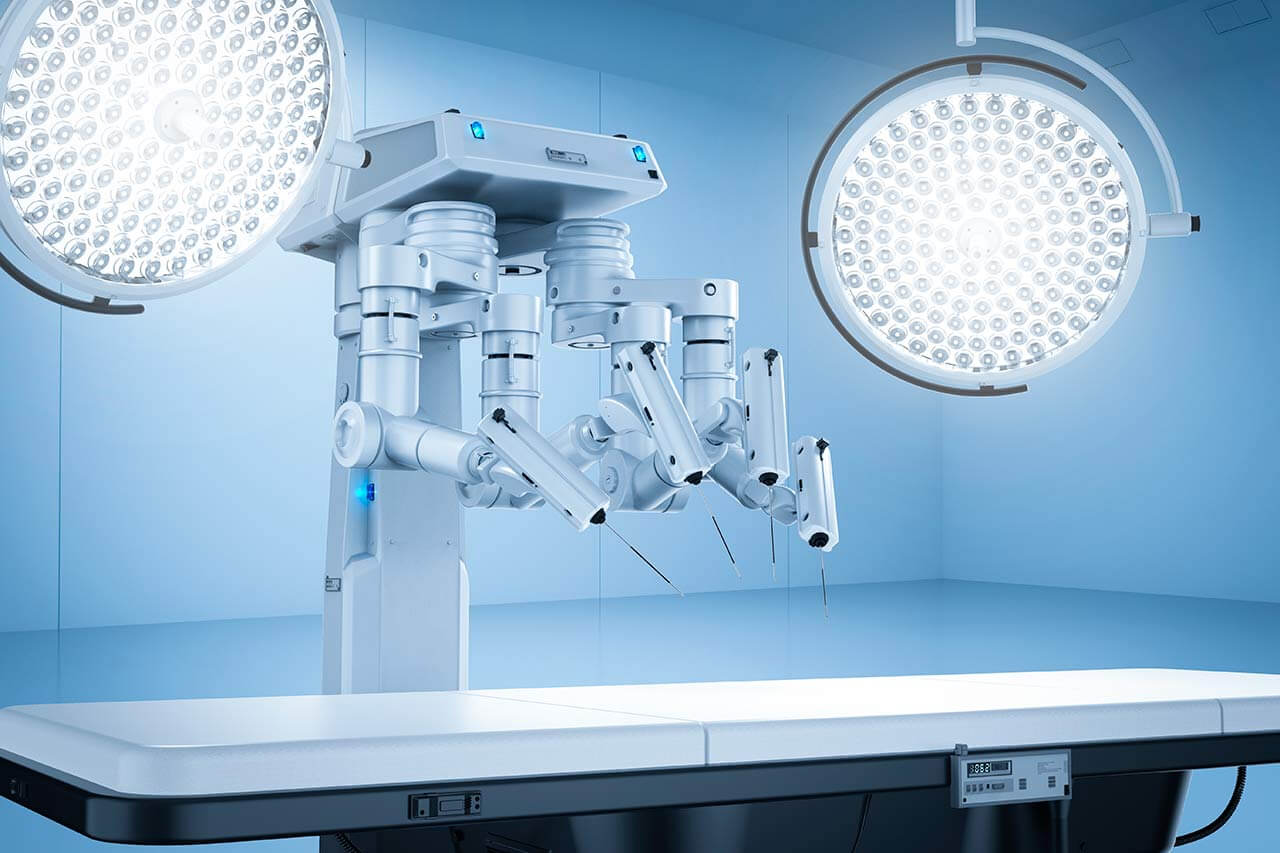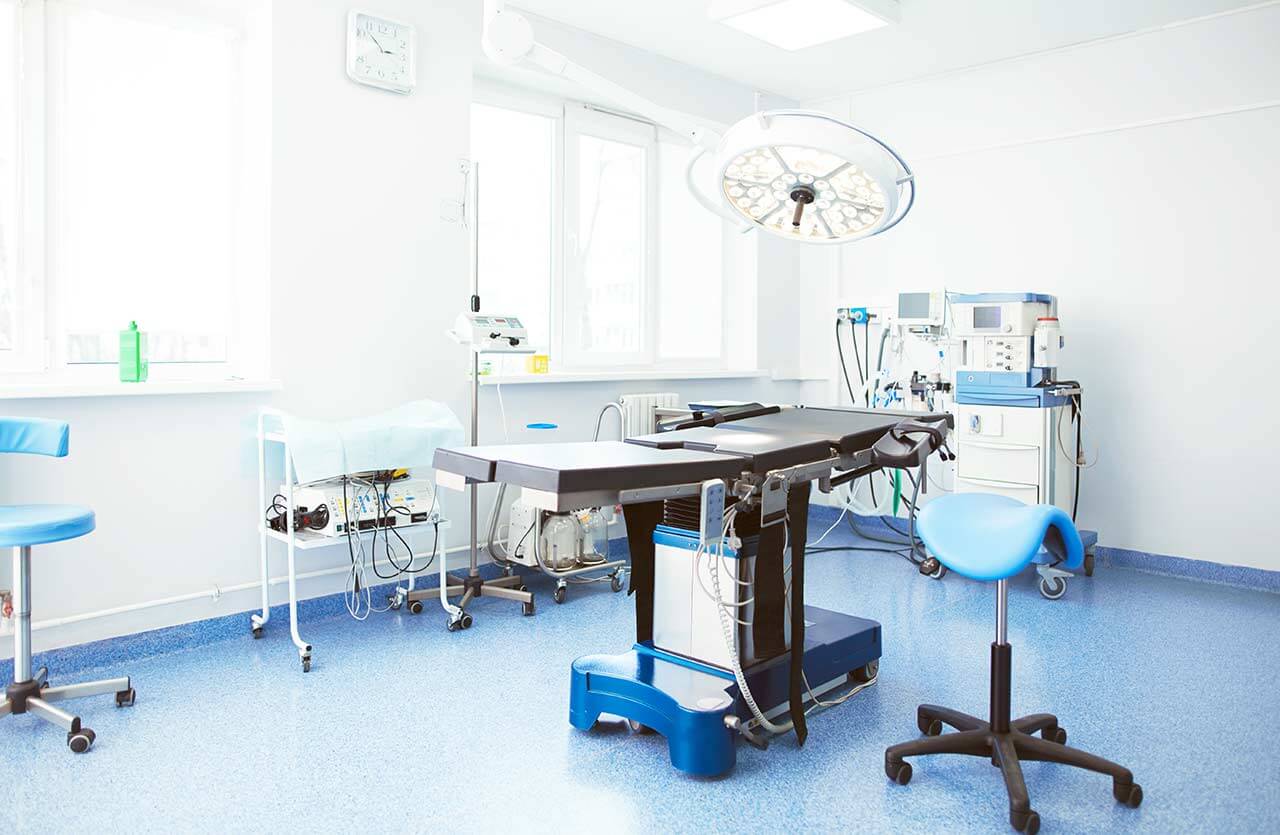
The program includes:
- Initial presentation in the clinic
- clinical history taking
- general clinical examination
- laboratory tests:
- complete blood count
- clinical urine test
- kidney function test (creatinine, urea)
- blood coagulation analysis (aPTT, PT, INR)
- inflammation indicators (CRP, ESR)
- semen analysis
- pelvic ultrasound
- digital rectal examination
- CT scan (on indication 650 €)
- MRI scan (on indication 1200 €)
- nursing services
- consultation of related specialists
- consultation of the chief physician and all leading experts
- development of individual treatment plan
- written statement
Required documents
- Medical records
- Ultrasound scan (if available)
Service
You may also book:
 BookingHealth Price from:
BookingHealth Price from:
About the department
The Department of Adult and Pediatric Urology, Andrology at the Marien Hospital Marl offers the full range of diagnostic and therapeutic services for patients with diseases of the urinary system and for men with pathologies of the reproductive system. The team at the medical facility also admits children and adolescents with urologic diseases. The department has 62 beds for inpatient treatment. Therapeutic options include both conservative and surgical techniques. Many operations are performed using the innovative da Vinci surgical system. The department also successfully uses modern laser systems, including the GreenLight laser, a holmium laser, a thulium laser and the laser for water vapor thermal therapy. The key focus of the department's work is on cancer surgery for malignant diseases of the prostate, bladder, kidneys, and testicles. The department also specializes in the treatment of urinary incontinence and pediatric urologic pathologies. Prostate diseases are treated in a specialized center certified in accordance with the DIN EN ISO 9001 requirements. The department is headed by Dr. med. Hans-Jörg Sommerfeld.
Prostate diseases are the most common in the department. The specialists of the medical facility regularly admit patients with prostate cancer, benign prostatic hyperplasia (prostate adenoma), acute and chronic prostatitis, etc. To provide patients with the most comprehensive and effective treatment of prostate diseases, the department has a specialized center, which was the first in the Recklinghausen district and the second in Germany to be certified in accordance with the international DIN EN ISO 9001 quality standard. The treatment regimen for patients with prostate cancer is developed individually, based on the stage of the oncological process, a patient's general health condition, and their age. The main treatment for localized prostate cancer is a prostatectomy. The department's surgeons most often perform this intervention using the innovative da Vinci Xi surgical system. The risk of complications during such operations is negligible. In addition, doctors manage to maintain potency and normal urination, which ensures a high quality of life for a patient. Depending on the particular clinical case, surgical treatment can be supplemented with chemotherapy, radiation therapy (external and internal), hormone therapy, and other types of treatment.
A fairly common disease in men is benign prostatic hyperplasia. An accurate diagnosis requires a clinical examination with a digital rectal exam, ultrasound (transrectal ultrasound as well as kidney and bladder ultrasound scans), and the PSA test. Should the diagnosis be confirmed, doctors will begin to develop a treatment regimen. At the first stage of prostate adenoma, it is enough to take medications. At the second and third stages, more radical measures may be required. such as transurethral resection of the prostate or retropubic/transvesical enucleation of the adenoma. The department's specialists quite often perform laser treatment of prostate adenoma using the GreenLight laser, the laser for water vapor thermal therapy, holmium, and thulium lasers.
The department effectively treats kidney and bladder diseases in men and women. The most common pathologies in clinical practice include pyelonephritis, kidney cancer, kidney stone disease, bladder cancer, cystitis, and urinary incontinence. The first-line treatment for kidney and bladder cancers is the surgical removal of the malignant tumor. Whenever possible, the department's urologists prefer the da Vinci surgical system, which provides an excellent therapeutic result while practically not injuring healthy tissues. Robot-assisted operations allow a patient to undergo effective treatment in the shortest possible time. Cystitis and pyelonephritis are usually treated with drugs. In the case of kidney stone disease, drug treatment is also possible (at the early stages), but if large stones are detected, extracorporeal shock wave therapy, ureteroscopy, and, in the most complex clinical cases, open surgery (up to 1% of patients with kidney stone disease) are performed.
An integral part of the work of the department's specialists is medical care for men with andrologic diseases, such as erectile dysfunction, infertility, epididymitis, orchitis, urogenital tuberculosis, and other pathologies. Erectile function can be restored with drugs, intracavernous injections, and vacuum therapy. Should infertility be suspected, a comprehensive examination will be carried out to detect its causes. Effective drug therapy can often be provided, but, in some cases, the only way to conceive a child is to undergo surgery. For example, doctors perform operations to treat varicocele, microsurgical aspiration of sperm from the epididymis, and other manipulations that allow a man to become a father.
The department also admits children and adolescents with urologic diseases. The specialists in this area provide medical care for children with enuresis, bladder outlet obstruction, hypospadias, undescended testicles (cryptorchidism), hydrocele, and phimosis. The treatment can be carried out with both conservative and surgical techniques. In most cases, operations for urologic diseases in children are performed on an outpatient basis, without a mandatory hospital stay. In addition, sparing minimally invasive techniques are usually used.
The department's main clinical activities are as follows:
- Diagnostics and treatment of prostate cancer (all surgical interventions are performed exclusively using the da Vinci surgical system)
- Open retropubic prostatectomy (radical prostatectomy with potency preservation)
- Laparoscopic removal of the pelvic lymph nodes
- Laparoscopic radical prostatectomy
- Low-dose rate brachytherapy (internal radiation therapy)
- Diagnostics and treatment of benign prostatic hyperplasia
- Transurethral electroresection and open transurethral resection of the prostate
- Surgical enucleation of the adenoma in the case of a severe prostate gland enlargement
- Transurethral microwave thermotherapy (as an alternative when the use of anesthesia is highly risky)
- Prostate adenoma treatment with the use of the GreenLight laser, the laser for water vapor thermal therapy, holmium, and thulium lasers
- Diagnostics and treatment of bladder cancer
- Endoscopic transurethral tumor resection
- Radical tumor removal (cystectomy)
- Various forms of urinary diversion (for example, an artificial bladder, Mainz-Pouch I, Mainz-Pouch II, etc.)
- Polychemotherapy (cisplatin/gemcitabine, MVAC, paclitaxel/gemcitabine)
- Diagnostics and treatment of kidney cancer
- Radical and organ-preserving cancer surgery (nephrectomy/kidney resection)
- Immunomodulatory therapy (interferon/interleukins/vinblastine)
- Surgical treatment of kidney cancer using the da Vinci surgical system
- Diagnostics and treatment of testicular cancer
- Surgical removal of the affected testicle
- Lymph node removal in the area of lymph drainage from the affected organ (retroperitoneal lymphadenectomy/modified lymphadenectomy with the preservation of nerve endings)
- Chemotherapy (PEB, PEI, carboplatin) adapted to the stage of cancer; as monotherapy or in combination with other treatment methods
- Diagnostics and treatment of kidney stone disease
- Endoscopic therapy through percutaneous and ureterorenoscopic approach
- Stone fragmentation using flexible and semi-rigid lithotripsy
- Extracorporeal shock wave lithotripsy
- Chemical stone dissolution
- Diagnostics and treatment of urinary incontinence in men and women
- Drug therapy
- Exercises to strengthen the pelvic floor muscles and the use of electrical stimulation methods
- Surgical procedures in accordance with the very latest scientific advances
- Placement of special vaginal tapes
- Surgical tightening of the pelvic floor muscles in the case of bladder prolapse (vaginosacropexy)
- Bladder neck elevation (Burch procedure)
- Artificial sphincter implantation for urinary incontinence in men and women
- Diagnostics and treatment of andrologic diseases
- Treatment of erectile dysfunction (impotence)
- Treatment of hormonal disorders in childhood and adulthood
- Treatment of "male menopause"
- Treatment of male infertility
- Diagnostics and treatment of urologic diseases in children
- Conservative treatment of enuresis, including urinary incontinence due to neuro-urological causes
- Treatment of bladder outlet obstruction: endoscopic and open procedures to eliminate improper urine outflow, surgical debridement for ureteropelvic stenosis
- Hypospadias repair
- Undescended testicle repair (cryptorchism)
- Surgical sanitation for hydrocele
- Circumcision for a tight foreskin: plastic, sparing and radical interventions
- Diagnostics and treatment of other urologic diseases in adults and children
Curriculum vitae
Dr. med. Hans-Jörg Sommerfeld is the Head Physician of the Department of Adult and Pediatric Urology, Andrology at the Marien Hospital Marl. The specialist has been studying prostate pathologies for many years and has vast experience in this medical field. The Specialized Prostate Center under his leadership has become one of the best medical facilities of this kind in Germany.
Dr. med. Hans-Jörg Sommerfeld is board certified in urology, and has additional qualifications in tumor drug treatment, andrology, special urologic surgery, and special X-ray diagnostics. The doctor received his medical education at the Faculty of Medicine of the Ruhr University Bochum.
Photo of the doctor: (c) Marien-Hospital
About hospital
The Marien Hospital Marl is a modern medical facility that provides each patient with high-quality and personalized medical care at the European level. Plans for the construction of the hospital appeared back in 1922, but because of the crises and World War II, they were not fated to be realized at that time. The construction of the medical facility began in 1957, and in 1961, the grand opening of the hospital took place. As of today, the hospital is part of the Katholisches Klinikum Ruhrgebiet Nord GmbH Medical Network, whose activities are based on Christian traditions. In addition, the healthcare facilities included in the Katholisches Klinikum Ruhrgebiet Nord GmbH Medical Network have the status of academic hospitals of the Westphalian Wilhelm University of Muenster. The medical complex has an excellent infrastructure and state-of-the-art technical equipment, which contributes to the best therapeutic results. All specialists working at the hospital pay due attention not only to a person's physical health, but also support him morally in every possible way.
Structurally, the hospital consists of seven specialized departments, including a Palliative Care Unit. The hospital's main focuses include general and abdominal surgery, urology (in which the hospital has achieved particular success), orthopedics, traumatology, spinal surgery, gastroenterology, oncology and hematology, endocrinology, cardiology and nephrology. Medical services are provided by a large, competent, and well-coordinated team of more than 900 employees. The high level of services provided is confirmed by the constantly increasing number of patients. The hospital admits more than 12,000 inpatients and about 15,000 outpatients annually.
In its practice, the hospital strictly follows the guiding principle "Medicine based on humanity", which implies respect and protection of human life and the most effective medical care for a patient to save his life and well-being.
Photo: (с) depositphotos
Accommodation in hospital
Patients rooms
The patients of the Marien Hospital Marl live in comfortable single and double rooms. All patient rooms have a modern design. The standard patient room furnishing includes an automatically adjustable bed, a bedside table, a wardrobe, a table and chairs for receiving visitors, a TV, and a radio. The hospital also offers free Wi-Fi.
Meals and Menus
The patients of the hospital are offered a tasty, healthy and varied three meals a day: breakfast, lunch and dinner. All dishes are cooked in the central kitchen of the Katholisches Klinikum Ruhrgebiet Nord GmbH Medical Network, which operates since March 2017 and meets the advanced requirements for food cooking and storing. Only high-quality and fresh products are used for cooking, whereas the skills of the chefs make these dishes extremely tasty. In addition, the hospital houses a bistro cafe, which presents a wide range of drinks, snacks, main dishes, and desserts.
Further details
Standard rooms include:
Religion
The hospital has a chapel where patients can stay alone and pray or attend regular Catholic masses.
Accompanying person
Your accompanying person may stay with you in your patient room or at the hotel of your choice during the inpatient program.
Hotel
You may stay at the hotel of your choice during the outpatient program. Our managers will support you for selecting the best option.




